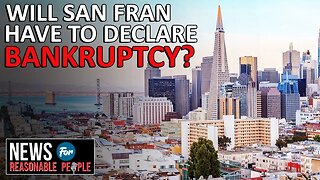Houston, We Have a Problem: The Shocking Truth Behind the City's Mass Exodus
Houston, Texas is a vibrant and dynamic city that has long been known for its thriving economy, diverse population, and rich cultural heritage. However, in recent years, the city has experienced a mass exodus of residents, with many people choosing to leave for a variety of reasons. In this essay, I will explore the factors that have contributed to this trend, including rising housing costs, traffic congestion, natural disasters, changing job market, air quality, and crime.
HOUSING
The cost of housing in Houston has been a persistent issue for many years, but the problem has become much more acute in recent times. As the city has grown and prospered, the demand for housing has increased significantly, driving up prices and making it increasingly difficult for many people to afford to live in the city.
One of the main drivers of rising housing costs in Houston is the lack of affordable housing options. There simply aren't enough affordable units available to meet the needs of low-income residents, forcing many families to live in substandard housing or to move to other cities in search of better options.
According to a report by the National Low Income Housing Coalition, the shortage of affordable housing has reached crisis levels in Houston. The report found that a minimum-wage worker in Houston would need to work 97 hours per week to afford a two-bedroom apartment at fair market rent. This means that even people who work full-time jobs are struggling to make ends meet and may be forced to choose between paying for housing and other necessities such as food, healthcare, and education.
The lack of affordable housing has also contributed to a rise in poverty and homelessness in Houston. Many low-income families in the city are forced to spend a disproportionate amount of their income on housing, leaving little left over for other expenses. This can lead to a cycle of poverty that is difficult to break, with families struggling to make ends meet and find a way out of their situation.
The city of Houston has recognized the severity of the affordable housing crisis and has taken steps to address the issue. The Houston Housing Authority, for example, provides affordable housing options for low-income families, while the Houston Office of Housing and Community Development offers various programs to help residents access affordable housing and reduce homelessness.
Efforts are also underway to increase the supply of affordable housing in Houston through the development of new affordable housing units and the preservation of existing units. The city has implemented zoning changes and tax incentives to encourage developers to build more affordable housing, and nonprofit organizations are working to rehabilitate and preserve existing units.
TRAFFIC CONGESTION
Traffic congestion is a major issue that has been affecting Houston for many years. With the city's rapid growth in population and economic activity, the demand for transportation has increased significantly, leading to longer commute times and gridlock on the highways and roads.
According to a 2021 study by INRIX, Houston ranks as the 11th most congested city in the United States, with drivers spending an average of 64 hours per year stuck in traffic. This is a significant amount of time that could be spent on more productive activities, such as work, education, or spending time with family and friends.
The traffic congestion problem in Houston has many negative consequences for residents. It can lead to increased stress, as drivers become frustrated by the slow-moving traffic and long commute times. This stress can have a negative impact on mental health and overall well-being.
In addition to the negative impact on mental health, traffic congestion also has economic consequences for Houstonians. Longer commute times can reduce productivity, as workers spend more time on the road and less time on the job. This can lead to decreased economic output and lower wages for workers.
Traffic congestion also has a negative impact on the environment, as it contributes to air pollution and greenhouse gas emissions. According to a 2020 report by the Texas Department of Transportation, transportation is the largest source of greenhouse gas emissions in Texas, with cars and trucks being the biggest contributors. This has negative consequences for the environment and public health, as air pollution can cause respiratory problems and other health issues.
Efforts are underway to address the traffic congestion problem in Houston. The city has implemented various transportation infrastructure projects and initiatives aimed at improving mobility and reducing congestion. These include expanding highways and roads, improving public transportation options, and promoting alternative transportation modes such as biking and walking.
NATURAL DISASTERS
Natural disasters have been a persistent challenge for Houston, with the city being located on the Gulf Coast and thus vulnerable to the impact of hurricanes and flooding. In recent years, several major hurricanes have caused widespread damage and destruction in the city, with Hurricane Harvey being one of the most devastating.
Hurricane Harvey, which hit Houston in 2017, caused billions of dollars in damage and forced thousands of residents to evacuate their homes. The storm dumped over 50 inches of rain in some areas, causing devastating flooding that damaged homes, businesses, and infrastructure. Many residents were left homeless, and the city was left to grapple with the aftermath of the disaster for years to come.
The impact of natural disasters on Houston has not been limited to hurricanes. The city is also prone to flooding due to its location on the Gulf Coast, and heavy rainfall can cause significant property damage and disrupt daily life for residents. In addition, the city is susceptible to other natural disasters such as tornadoes, which can strike with little warning and cause significant damage.
The impact of natural disasters on Houston has been significant, with many residents choosing to relocate to other cities in search of safer and more secure living conditions. This has led to a decline in population and economic activity in the city, as businesses struggle to recover from the damage caused by these disasters.
Efforts are underway to address the impact of natural disasters on Houston and to make the city more resilient to future disasters. The city has implemented various measures to mitigate the impact of flooding, such as building new infrastructure to better manage stormwater runoff and developing early warning systems to alert residents to the risk of flooding.
CHANGING JOB MARKET
The job market in Houston has undergone significant changes in recent years, posing challenges for many residents. Historically, the city has been an energy-focused economy, with many jobs in the oil and gas industry. However, the world is shifting towards renewable energy sources, and the demand for fossil fuels is declining. This has led to a decline in employment opportunities in the city, forcing many people to look elsewhere for work.
The shift towards renewable energy sources has been driven by concerns about climate change and the need to reduce greenhouse gas emissions. This has resulted in a global transition towards cleaner energy sources such as solar and wind power, which has had a significant impact on the energy industry in Houston. As a result, many energy companies in the city have had to adapt to these changes, which has led to a decline in employment opportunities in the traditional energy sector.
In addition to the shift towards renewable energy sources, the COVID-19 pandemic has also had a significant impact on the job market in Houston. The pandemic has disrupted many industries, including hospitality, tourism, and entertainment, leading to job losses and uncertainty for many Houstonians. Many businesses have had to close their doors or reduce their operations, which has had a ripple effect on the local economy.
The pandemic has also forced many people to work from home, which has changed the way many companies operate. This has had a significant impact on the real estate market in Houston, with many businesses downsizing or moving to more affordable locations outside of the city. This has led to a decline in commercial real estate values in the city, which has further contributed to the decline in employment opportunities.
AIR QUALITY
Air quality is another issue that has driven some people to leave Houston. The city has long struggled with high levels of air pollution, which can have serious health consequences for residents. The city's position as a major industrial hub, coupled with its hot and humid climate, can lead to the formation of harmful pollutants such as ozone and particulate matter. This has led some people to seek out cleaner air and a healthier environment in other cities.
CRIME
The issue of crime is a concern for many Houston residents, as the city has seen a rise in violent crime in recent years. While Houston is generally a safe city, certain neighborhoods have experienced an increase in violent crime, which has led some residents to feel unsafe and to seek out safer communities in which to live.
According to a 2021 report by NeighborhoodScout, Houston's violent crime rate is higher than the national average, with a 1 in 126 chance of becoming a victim of violent crime. This is a significant concern for residents and has led to a decline in quality of life for many people in the city.
The rise in violent crime in Houston has been attributed to a variety of factors, including poverty, drug addiction, and gang activity. The city has implemented various measures to address these root causes of crime, such as investing in education and job training programs and providing support to at-risk youth.
In addition, the city has also implemented various law enforcement measures to combat crime, such as increasing police presence in high-crime areas and implementing community policing initiatives to build trust between law enforcement and the community.
Despite these efforts, the issue of crime remains a concern for many Houston residents. However, the city is committed to addressing this issue and making the city a safer place to live for all residents. By investing in education, job training, and community support programs, as well as implementing effective law enforcement measures, Houston can reduce the incidence of violent crime and enhance the quality of life for its residents.
FINAL THOUGHTS
Despite these challenges, Houston remains a city with a lot to offer. Efforts are underway to address the issues facing the city, including investments in renewable energy, air quality improvement, public safety, disaster preparedness, and affordable housing. The city's diverse population, thriving arts and culture scene, and strong sense of community are just a few of the reasons why people continue to call Houston home. By working together, Houstonians can ensure that their city remains a great place to live, work, and raise a family for generations to come.
-
 9:59
9:59
Living in Oklahoma
11 months ago $0.01 earnedOklahoma City (OKC), Oklahoma - YOU'LL Love these when Moving to OKC in 2023
2718 -
 12:22
12:22
Simon Katz
2 years ago $0.03 earnedCALIFORNIA EXODUS | What Joe Rogan, Elon Musk, Ben Shapiro Leaving Means To People? Will More Leave?
2462 -
 3:04
3:04
Restored Republic
5 months agoBoston's Very Diverse Mayor Practically Begs Texas to Ship Her Illegal Immigrants
2.14K -
 3:04
3:04
Theusmilitarynews.com
5 months agoBoston's Very Diverse Mayor Practically Begs Texas to Ship Her Illegal Immigrants
103 -
 21:14
21:14
Living in Dallas Texas
3 months agoAvoid Moving to Dallas Texas! Unless You Can Handle These 12 Facts!
1824 -
 13:17
13:17
.
2 years ago13 Reasons Why You Shouldn't Move to Daytona Beach Florida
11 -
 26:23
26:23
Scott Baxter Realtor
6 months agoMoving From Washington to Texas 2023 | Our 2 Year Recap | Seattle | Austin | Dallas
20 -
 15:59
15:59
Living in Dallas Texas
3 months agoWhy do Californians REGRET Moving to Texas?
2631 -
 21:37
21:37
News For Reasonable People
1 year agoSan Francisco's Downtown Core Plummets: Massive Implications for the City's Budget
1103 -
 5:54
5:54
NextNewsNetwork
1 month agoLA Mayor's Shocking Plan Wealthy Residents to Solve Homelessness Crisis
9057